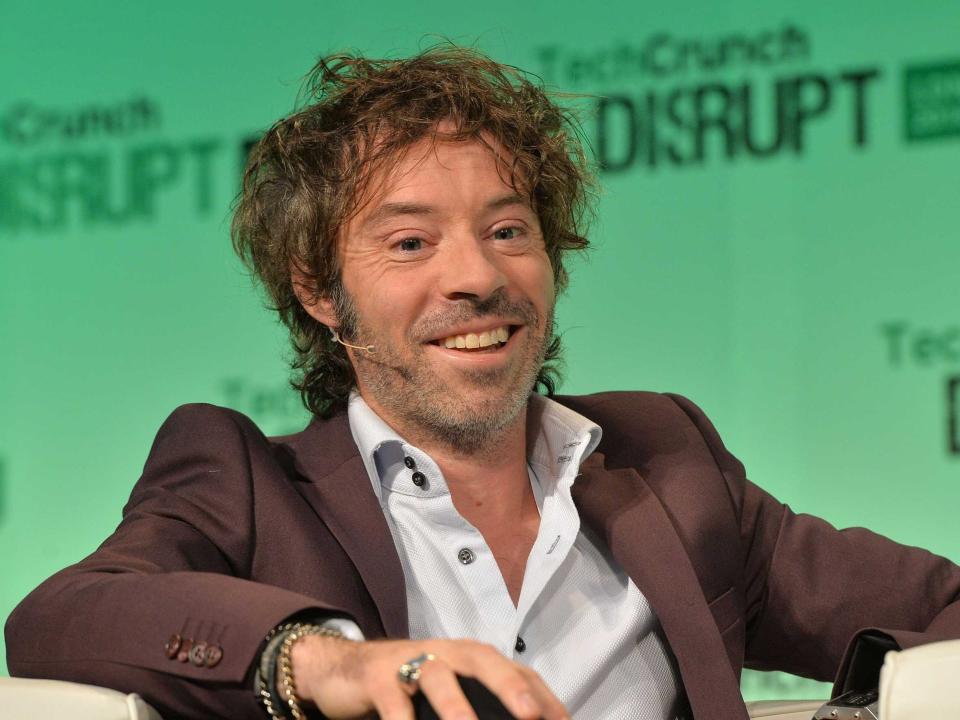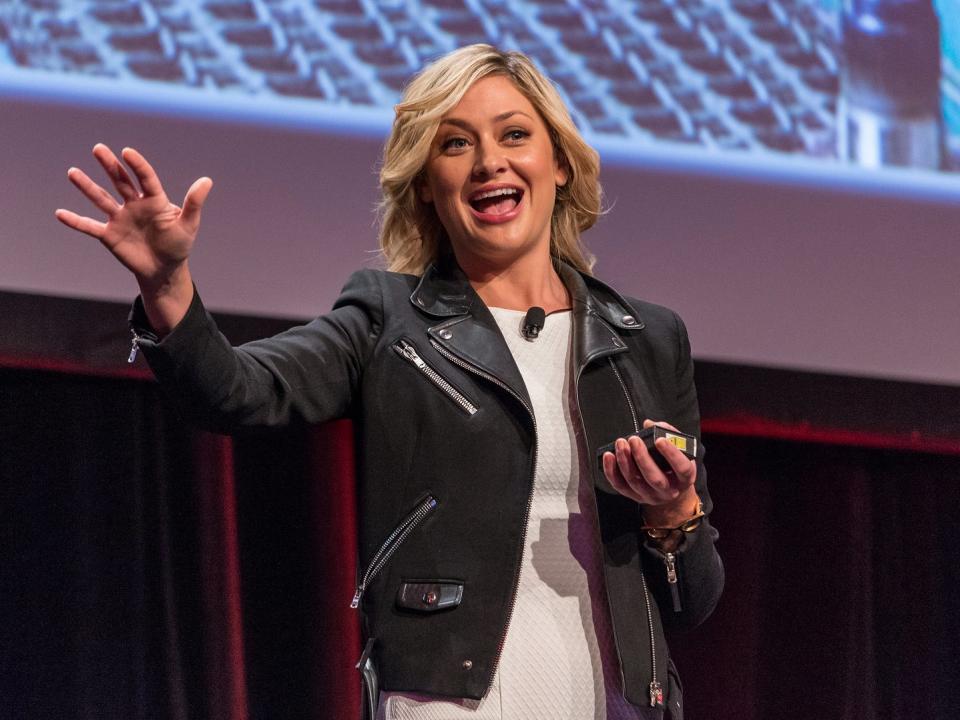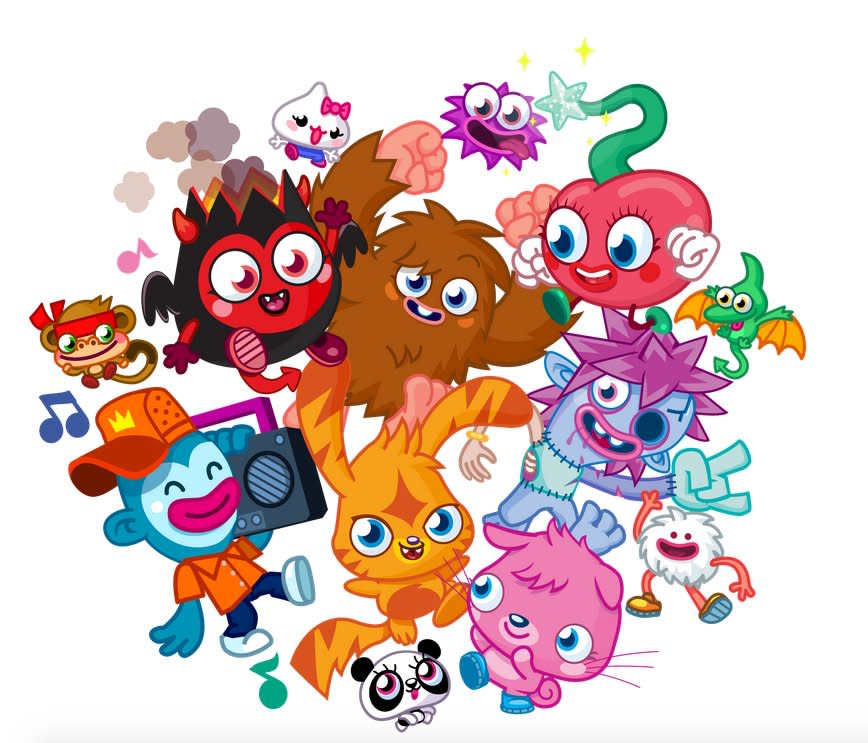The founder who built the addictive game Moshi Monsters wants you to be less of a slave to your iPhone

Flickr/TechCrunch
Michael Acton Smith, the founder and chairman of Mind Candy, might have built his reputation on the on-screen addictiveness of Moshi Monsters, but now he wants people to learn to switch off.
He told Business Insider during an interview that modern life was "stressful" and that "most of us are slaves to our devices."
"That causes a lot of stress," he said. "This is why meditation and living mindfully is important. To be conscious about where we use [devices], that's really powerful. Meditation allows us to become masters of our tech."
Acton Smith is now co-CEO of mindfulness app Calm, along with founder Alex Tew, and said he's a convert to meditation.
He still has an iPhone 6s, but said he’s more aware of when he uses it.
"I used to use my phone pretty much all day, doing emails and social media before bed. It would be the first thing I would check," he said. "I think meditation and practice and being more aware of using my device has changed my relationship with my phone for the better. I don't have strict rules, I'm just more aware of how and when I use my phone."
He doesn't look at his phone before leaving his house for Calm's office in San Francisco, instead giving himself time to think or write in a diary. When he gets to the office, Calm's team meditates for 10 minutes before work. "I don't use my phone through the day as much as I used to," he said.
Calm, maybe ironically, is a smartphone app. It's a freemium model, meaning people can sign up and get some meditation sessions for free. Most, however, require the £3.74 minimum monthly subscription. There are also breathing exercises and new, mostly paid feature called "sleep stories" where a narrator will recount a story until you drop off.

CalmFor Acton Smith, smartphones were the most obvious way for Calm to reach a massive prospective customer base. He acknowledged that smartphones "are a contributor to stress", but also said technology "is neither good or bad, but neutral. It's how you interact with it that matters." Despite a burgeoning industry of mindful colouring books and apps, there is relatively little research on the benefits of any of these things.
In 2014, researchers at John Hopkins University published an overview of 47 clinical trials which evaluated the effects of meditation on patents with health problems.
They reported a "small to moderate effect" of mindfulness and meditation in reducing symptoms of stress, anxiety, and depression, and in reducing physical pain. The researchers said more funding was needed to probe the promises of mindfulness further.
A 2015 study which gave mindfulness apps a quality rating found that most fell short of minimum standards. It scored Calm rival Headspace highly at four out of 5. Calm didn’t feature in the study, possibly because it was too new.
In Calm's favour, though, are the many positive reviews on iTunes, Google Play, and mental health app reviewers Psyberguide.org. For his part, Acton Smith said he thought meditation "was a bit weird" and that the practice had "a PR problem", until he started doing it regularly.
Calm’s San Francisco location has necessitated Acton Smith’s move from London to the US, though he says he often returns. He’s also now single, after a split from long-time partner, Decoded founder Kathryn Parsons.

Flickr/CeBIT AustraliaThe company has raised minimal funding, none of which has come from Mind Candy investors. Backers include Bebo cofounder Michael Birch and WordPress cofounder Matt Mullenweg.
"We've had a few chats," Acton Smith said of Mind Candy’s backers, which include Accel Ventures, Index Ventures, and Spark Ventures. "Because we haven’t decided to do a big round, we haven't had deep chats. It could be an option."
Calm, he added, was "cash flow positive."
As for Mind Candy, Acton Smith remains creatively involved. He stepped down as CEO in 2014, with Ian Chambers taking over in February 2016.
"I'm still very involved with Mind Candy, it's my baby and I love the business, and I love Moshi [Monsters]," he told Business Insider. "We're in the midst of relaunching Moshi Monsters."
That relaunch has been some time in coming. Board member and ex-COO and CFO Divinia Knowles first discussed a Moshi Monsters relaunch for younger children in 2015. Since then, the company has said it could go bust if it can't boost revenue and renegotiate a £6.5 million loan from TriplePoint. Revenue in 2015 almost halved to £7.2 million, according to Companies House filings.

Moshi Monsters/Mind Candy
At Moshi Monsters' peak, revenue was almost £47 million in 2012. But then followed a tough couple of years as Mind Candy failed to replicate Moshi Monsters' success on mobile.
There were layoffs in 2014, then Acton Smith stepped down, and now the company has cast about for new revenue sources. He described that period as a "scary and unsettling time."
"The public layoffs were really tough to do, we'd given everything into that business, and revenues tumbled. There were five rounds of layoffs," he said.
Acton Smith admitted Mind Candy's 2014 follow-up to Moshi Monsters, World of Warrors, "didn't resonate".
"It's going, but it's not a huge cash generator," he said. "Mind Candy's not as big as it was, but it's in good shape."
He is "more confident" about new offering Petlandia, where people can order personalised storybooks starring their pets. He said orders for books were in the hundreds of thousands, and that there was a "real buzz" from people who wanted to make their pets famous.

Mind Candy
Mind Candy's investors are actively involved in keeping the company focused, he said. "They are working closely with us and making sure we have capital and the support we need."
Would he have sold the business at its height?
"We made a conscious decision as a board and management team to keep our chips on the table. We had opportunities to sell the business for an eye-popping number," he said. "We felt — why not shoot for the moon? Why not build the next Disney? In hindsight, that was probably a mistake. We didn’t fully appreciate how fickle the kids' entertainment space would be."
He added: "The story's not over. We've managed to keep the business afloat, and now we're rebuilding it. It's a phoenix from the flames. I'm proud that's happened, and of the team we have in place."
NOW WATCH: This animation shows how terrifyingly powerful nuclear weapons have become
See Also:

 Yahoo News
Yahoo News 
